Academic Programs
The curriculum is comprehensive and is based on the assumption that students need skills as well as specific content. All our academic programs teach the study skills that are necessary to master a subject. Technologies including computers, video, and distance learning are utilized, but not at the expense of traditional teaching methods. Tutorials are often a major aspect of a student’s academic program. Meeting individually with the teacher for regular instruction and help sessions reinforces classroom instruction. Tutorial sessions are scheduled based upon need.
Parker Academy offers a full range of curricula meeting NH Department of Education Standards for both middle and high schools and leading to a regular high school diploma (or credits for transfer to other schools). In addition to courses required by the State, there are a variety of electives comprising the curriculum, which is both rich and rigorous. These courses, including such choices as AP French and AP Spanish, AP Calculus, Law, Film, Computer Graphics and Web Page Design have been offered to meet students’ needs and interests.
High school students must earn 21 credits for a Parker Academy diploma; these include the requirements issued by the NH State Department of Education and are outlined in detail in the Parker Academy Student Handbook. Students attending Parker Academy through a special education placement may be working towards a diploma from their sending school. The specific courses to be taken, other diploma requirements to be completed and how credits will be transferred is arranged out by the Individualized Education Plan team during the admissions process. Courses at Parker Academy meet daily for one hour for either a full year (one credit) or a half year (.5 credits). In some instances, quarter credit courses may be offered; these may be concentrated electives to fulfill a specific interest or need or, as in the case of Art, a program integrated into the core curriculum, with specific instruction distributed over a semester or year.
The Parker Academy student-to-faculty ratio is 3:1, with an average class size of five students. Students are grouped heterogeneously and by ability depending on the class. Students from a wider range of ages may be grouped together for all-school activities such as clubs or special interest classes.
Programs
Physical Education & Health
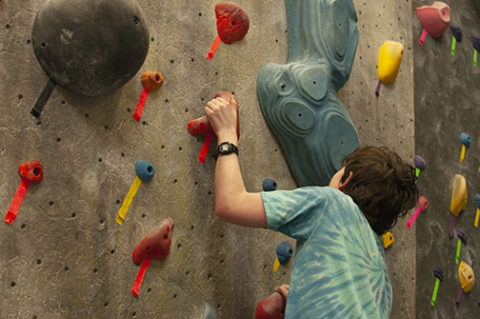 Our wellness program at Parker Academy provides an environment that promotes healthy lifestyles. In our Physical Education and Health classes, we give students opportunities to be physically active so that they can learn athletic skills, improve self-esteem, improve social skills and increase physical fitness. Our health and nutrition classes educate students in essential lifestyle habits that encourage positive self-care.
Our wellness program at Parker Academy provides an environment that promotes healthy lifestyles. In our Physical Education and Health classes, we give students opportunities to be physically active so that they can learn athletic skills, improve self-esteem, improve social skills and increase physical fitness. Our health and nutrition classes educate students in essential lifestyle habits that encourage positive self-care.
The physical education curriculum is focused around the individual improvement of each student and their needs. Personal fitness is developed through lifetime sports, sports that can be practiced and implemented outside of school and throughout the rest of the student’s life. Lifetime sports are inclusive and have a non-aggressive nature.
Some examples of activities that are taught in the physical education program include slacklining, speed stacking, disc golf, bocce ball, snowshoeing, tennis and rock climbing. Many of our activities take place off-campus and allow the students an opportunity to participate in them without unnecessary competition. In addition to teaching Physical Education classes at all levels, we also offer group and individual tutoring in Personal Fitness and the exploration of various sports.
The health curriculum is based on the promotion of wholesome wellness habits. Taking care of the whole body is key; focusing on physical, mental and social health as the three main aspects of one’s health. Hands on experiments and activities are implemented to keep students engaged in their learning and interested in their health. Although wellness activities can be found throughout the curriculum, our health classes are designed to develop and reinforce their social pragmatic skills and teach them the value of mindfulness.
Math
 Real world applications are a primary focus for the Parker Academy math department. We frequently show students how math connects to the real world and students’ futures. Students examine careers that call for math skills as well as learn from professionals in the field.
Real world applications are a primary focus for the Parker Academy math department. We frequently show students how math connects to the real world and students’ futures. Students examine careers that call for math skills as well as learn from professionals in the field.
The Mathematics curriculum is aligned with the state’s core competencies and the Common Core State Standards for both middle and high school classes.
Math classes and tutoring opportunities are available at all levels and stages of development. In addition to Pre-Algebra, Algebra I and Algebra II, we offer classes in the following areas: Consumer Math, Business Math, Geometry, Pre-Calculus and Calculus, Probability and Statistics, and Trigonometry.
We meet the students where they are at and work with them to improve on their weaknesses while challenging their strengths. By offering students practical hands on opportunities, we use a variety of teaching strategies to help them to become more confident in their skills. We integrate social pragmatic skills into our lessons, taking advantage of teachable moments. In addition, we incorporate the history of math, famous mathematicians, and real world applications.
Math classes at Parker Academy are strength based, allowing students to acquire skills through practice, teamwork, and integrated activities. These allow students to demonstrate their understanding in multiple ways that include standard math work (quizzes, tests, and homework), recognizing the importance of multiple intelligence learning styles such as music, art, and game design.
Students meet with teachers individually to evaluate their progress and get feedback on the spot as needed. Students also discover and work on their strengths and weaknesses in both executive functioning and calculation skills. Students utilize technology such as the Promethean board, PC computers and math applications to build both their math and tech skills in a way that will continue to work for them as life-long learners.
Science
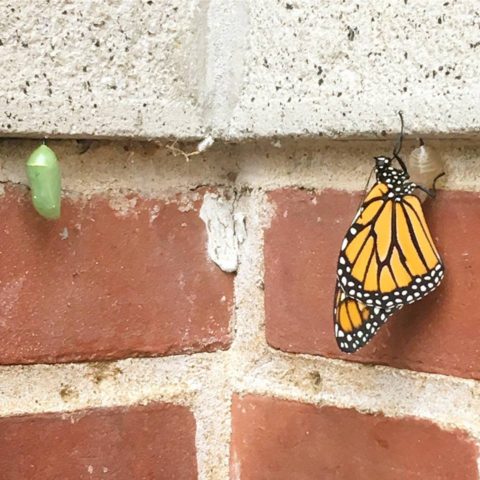 Science at Parker Academy allows students to explore the wonders of our world through both traditional classroom experiences and a mix of hands-on experiential learning. Our courses include but are not limited to; Biology, Chemistry, Physics, and Environmental Science. Students have the opportunity investigate scientific concepts using a variety of methods in multiple settings.
Science at Parker Academy allows students to explore the wonders of our world through both traditional classroom experiences and a mix of hands-on experiential learning. Our courses include but are not limited to; Biology, Chemistry, Physics, and Environmental Science. Students have the opportunity investigate scientific concepts using a variety of methods in multiple settings.
There are many times when we take science out of the traditional classroom setting. We engage in a variety of local field trips that enhance student learning. We connect with professionals using science in the real world. Previous activities have included following the life cycle of butterflies, exploring the environment of local woodlands and exploration of New Hampshire’s coastline.
In the fall, we check out our local orchards. These offer an insight into how local fresh fruits are grown and harvested. They also provide our students with a chance to see local birds and other indigenous wildlife. This also includes a close look at the GREAT HAWK MIGRATION, which lets students study these magnificent creatures.
In our Middle School Science classes, we spend a great deal of time practicing the scientific method. Students have the chance to perform “kitchen safe” science experiments. This allows them to explore the key aspects of real scientific investigations. Students experiment, collect data, record, and present their findings using formats such as PowerPoint presentations and research papers.
Our High school classes delve deeper into scientific principles. They have the opportunity to understand biological systems and the chemical and physical interactions of matter and energy around us. Our courses are designed to be highly individualized, allow us to structure them according to student interest. We also use current scientific discoveries to connect general theoretical ideas to the real world.
As participants in our science classes, students achieve a greater understanding of the natural world around us. In addition to offering classes in Biology Physical Science and Environmental Science, we also offer courses in Anatomy and Physiology, Earth and Space Science, Physics and Chemistry.
Language Arts
Our course offerings allow students to explore their own interests through the lens of reading and writing. We provide highly individualized learning opportunities, bringing the course material to life through theatrical approaches to teaching, tabletop gaming, and hands on projects for visual learners. This approach fosters creativity and allows students to take on leadership roles in the classroom.
Students are given opportunities to work on project-based assignments that focus on areas of specific interest to them. These opportunities encourage team-building in the classroom so as to teach and reinforce social pragmatic skills. They also help to strengthen their executive functioning.
Students have the opportunity to read a wide range of materials to allow for differentiation and creative opportunities. It is through their discovery of reading that they learn about other cultures, ideas and information to help them reach their potential. The importance of written expression is highlighted through various writing methods, giving the students strategies and personal attention to help facilitate their growth.
Students frequently conference with teachers and learn how to effectively self-evaluate and focus on their strengths as well as build on their reading, writing, oral communication and researching skills. Courses offered at the high school level include survey courses in American Literature, British Literature, Multicultural Literature, Journalism, Mythology and Symbolism, Heroes and Villains Across Time and Space, Friendship Family and Legacy, Tolerance Culture and Identity, Creative Writing, and Survival. Where appropriate we also offer AP course to our advanced learners. At the middle school level, the Language Arts curriculum is offered either as individual classes or as an integrated Language Arts and Social Studies course.
World Languages & Cultures
 The World Language and Cultures program at Parker Academy aspires to develop a greater understanding of various cultures while developing the foreign language skills of our students. A greater understanding of the world will help them develop a broader awareness of what other parts of the world have to offer, helping them to prepare for the demands of a changing world.
The World Language and Cultures program at Parker Academy aspires to develop a greater understanding of various cultures while developing the foreign language skills of our students. A greater understanding of the world will help them develop a broader awareness of what other parts of the world have to offer, helping them to prepare for the demands of a changing world.
World Language courses at Parker Academy provide students with linguistic and cultural knowledge that they can use to better communicate and collaborate in an increasingly shrinking world. Exposure to World Language develops an awareness of other cultures, differing views, and an understanding of how others perceive the world.
The study of foreign cultures at Parker Academy not only aspires to develop in students’ awareness and understanding of foreign cultures, it also aims to build a greater self-awareness and cultural self-awareness. Our students can choose from Spanish, Mandarin Chinese, French, and Asian Culture.Knowledge of foreign language and culture will enable students to interact with others different than themselves in a sophisticated and worldly manner. Effective collaboration in the 21st century rests on one’s ability to clearly communicate with others in their native tongue coupled with an understanding of their culture.
Social Studies
Social Studies at Parker is integrated with student interests through such courses as: U.S. History, N.H. History, US & NH Civics and Government, New Hampshire Politics, World History, Ancient Civilizations, Early World History, Economics, and Sociology. Students create projects that reach across disciplines to incorporate math, psychology, sociology, anthropology, world religions and both ancient and modern cultures. Students work both in the classroom and in their community through both individual research and outreach to create connections that will continue throughout their lives.
The focus is on real-world applications, as well as research. Students are introduced to primary and secondary source readings while engaged in project-based learning. Students apply the skills they learn across the curriculum to demonstrating their understanding of world and American history as well as the social sciences and quantitative reasoning through use of graphs, charts, and math skills including statistics and demographic information.
Social Studies courses utilize a variety of teaching strategies to assist students in understanding, explaining, and reflecting on the world around them and its history. Students work towards fulfilling the competencies through reading and analyzing primary and secondary text and materials, sharing and evaluating ideas and concepts through discussion and debate, and explicating concepts and themes in writing. Information and themes are shared and developed in a variety of modes, through hands-on exercises, videos and artifacts, presentations, speakers, etc.
Students are encouraged to expand their primary style of learning and to engage in other styles as well. The strategies used in all of our Social Studies classes seek to create a learning environment where students can understand and respond to the past through engaging in direct involvement, aided by the strategies, with a variety of content. Through our efforts, we help students to transition into adulthood in a manner where they are prepared to take on future challenges.
Fine Arts: Visual Arts
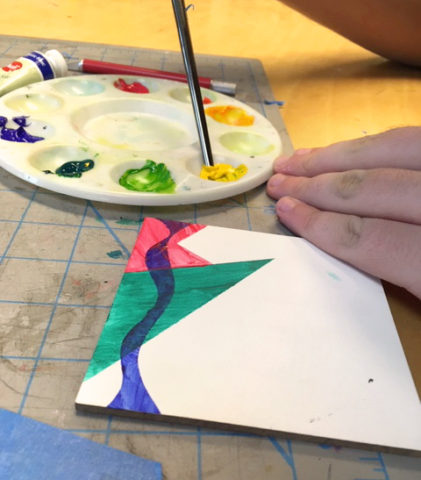 The Department of Fine Arts provides students with access to a wide range of expressive mediums and processes. Parker Academy recognizes that the arts offer students unique opportunities to practice and cultivate distinct ways of thinking, communicating, reasoning, investigating and knowing. This is a highly individualized program that helps students to build on their strengths as they explore new ways to express themselves.
The Department of Fine Arts provides students with access to a wide range of expressive mediums and processes. Parker Academy recognizes that the arts offer students unique opportunities to practice and cultivate distinct ways of thinking, communicating, reasoning, investigating and knowing. This is a highly individualized program that helps students to build on their strengths as they explore new ways to express themselves.
Foundation skills taught in both disciplines allow students to select an appropriate means of expression and to individualize their approach through choice of media and instrument. Visual Thinking Strategies engage students with looking at and interpreting works of art and making historical connections. Students are encouraged to stretch and explore playfully and embrace the element of chance discovery in their process.
Visual Arts students apply understandings of design and aesthetics to make functional objects for everyday use as well as paintings, prints and sculpture. Art students have access to and instruction in drawing and painting, printmaking, ceramics, book arts, welding, woodworking and other media.
Though process is considered an important piece of the arts experience, students complete a range of projects which have included: ceramic tiles, found object sculptures, self-portraits, and portfolios for art college admissions. Read more about our visual and applied arts programs on our blog.
Music
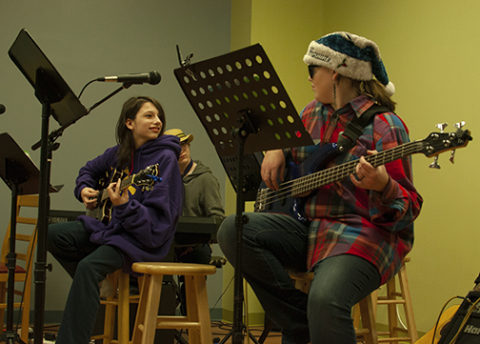 The music program at Parker Academy is unique in that it aims to achieve both educational and therapeutic outcomes. It is designed to be student centered, with student musical preferences taking center stage. Most of the songs we play are chosen by the students in each class. All students have the opportunity to learn to play an instrument of their choice (guitar, bass, piano, drums etc.), as well as refine their vocal talents. Many of our students learn to play more than one instrument.
The music program at Parker Academy is unique in that it aims to achieve both educational and therapeutic outcomes. It is designed to be student centered, with student musical preferences taking center stage. Most of the songs we play are chosen by the students in each class. All students have the opportunity to learn to play an instrument of their choice (guitar, bass, piano, drums etc.), as well as refine their vocal talents. Many of our students learn to play more than one instrument.
We teach our students how to play together, recognizing the need to help them pull together as a group. Along with teaching the skills that are fundamental to music making, we also take time to examine context in music as it relates to culture, society and the human experience. In this way, our students’ musical and artistic expression is nurtured and encouraged to grow.
We offer an after school ensemble for students interested in playing in a more advanced group setting. Our school ensemble performs at various venues in the Concord area and can often be seen performing at various fundraisers and non-profit community showcases. We also have “Open Mic Nights” at least twice per year. During these, all students (and some staff) have the opportunity to showcase their abilities and perform the songs they have been working on during their classes. Read more about our music program here.
Technology
We believe that it is essential for our students to have a well-rounded education that includes developing skills in the various technological fields. Our students have access to courses that develop their digital skills (Communication and Information Technology). They learn about being safe and courteous on the internet. Students are taught about the efficacy of various digital tools and social media platforms. They learn the critical features of various software (and cloud) tools and products.
Students are also exposed to key concepts and skills in the Industrial Arts (Woodshop, Pre-engineering and Design, Energy and Power Technologies). In addition, group and tutoring opportunities include Small Engine Repair, Welding and Automotive Repairs. Where appropriate, students are engaged in cross-curricular projects that integrate several fields of learning.
Other Activites
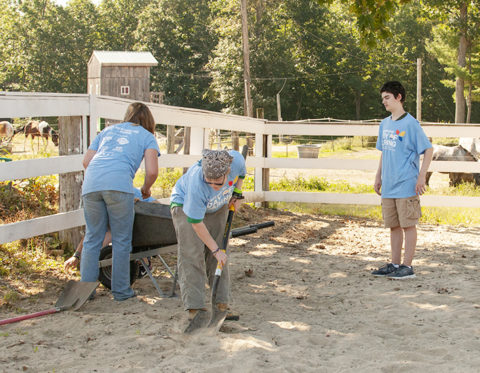 Psychological Support: The faculty, and staff have designed and maintain a learning environment that is different from most schools. Parker Academy has a carefully designed and maintained, psychologically safe trauma informed positive school climate. The model enables students’ stigma free continuous access to the psychologist and other trained staff. Students at Parker Academy have easy access to counseling services because it does not require a scheduled appointment. The school psychologist is often in the classroom either teaching or being part of the activities.
Psychological Support: The faculty, and staff have designed and maintain a learning environment that is different from most schools. Parker Academy has a carefully designed and maintained, psychologically safe trauma informed positive school climate. The model enables students’ stigma free continuous access to the psychologist and other trained staff. Students at Parker Academy have easy access to counseling services because it does not require a scheduled appointment. The school psychologist is often in the classroom either teaching or being part of the activities.
Psychological services augment students’ other therapy, because most receive psychological and psychiatric services outside of the school. With parental permission, there often is a close working relationship between the school psychologist and the external therapist. Counseling services are trauma sensitive, strength based, neurologically informed and incorporate research on mindfulness (the moment-to-moment awareness of one’s experience without judgment.)
An important part of the role of the school psychologist is to be a resource to the continuous improvement, professional development plan for the staff. Parker Academy realizes that there is an ongoing explosion in new research relevant to the education of our students and we are committed to keeping abreast of this research and its application.
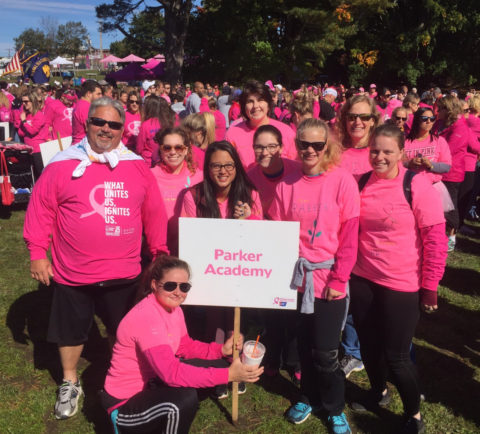
Advisory: All of our students participate in our Advisory program. During Advisory period, students are engaged in topics that help them to handle their problems, find their voice and advocate for their interests and needs. In addition to having an Advisory class, each student has a trusted adult, an Advisor, that they can go to for help. The Advisor serves as the chief conduit of information between the school, the child and the family. The Advisor tracks student progress, grades and behavioral concerns. The Advisor works with other support staff to facilitate student emotional and social growth.
Service Learning: We believe that it is important for our students to contribute to the activities and well being of their communities. Students at Parker Academy are encouraged to become involved in service projects, creating a greater sense of who they are and how they are connected to their hometowns and the state of New Hampshire. Our service learning activities also provide students with opportunities to practice their social pragmatic skills. In addition to various fundraisers, students volunteer their time and energy to support the efforts of various nonprofits and community based initiatives such as “Rock N Race,” “Making Strides Against Breast Cancer” and the “Concord Day of Caring.” In addition to our participation in the “Empty Bowls” fundraiser, our students help various nursing homes, participate in the Audubon’s various activities and help build toys for the “Toys for Tots” campaign.
Students are also offered individual tutoring as indicated above based on a need for specific courses required to make progress towards a regular diploma or to meet individual instructional needs.

